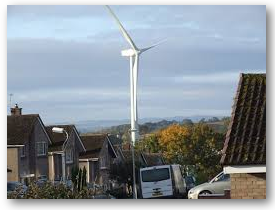Lord Krebs, the zoologist who has found his way to the helm of the UK's climate change adapation efforts as head of the CCC Adaptation Subcommittee, has been interviewed in The Conversation.
With the incredible success of fracking in the US, many people in UK are very excited about the possibility of fracked gas. Areas that have historically had very large coal reserves are also associated with natural gas.
But there’s huge uncertainty about the amount of gas — anywhere from a year to decades; it’s not going to be easy to get out unlike in the US, because the rocks are highly fragmented; and some of the places where gas is likely to be abundant are densely populated or sites of natural beauty.
I'm not aware of Lord Krebs ever having voiced concern about placing the considerably more intrusive wind turbines in densely populated areas - see one example here. Perhaps readers can point me to occasions that I've missed.
Perhaps readers can point me to occasions that I've missed.
But what about his other point - that in UK shales the rocks are heavily fragmented, making it hard to extract gas from. I'm slightly bemused by this idea. Even Greenpeace seem to give considerable weight to the idea that UK shales are likely to be better than those in the USA. Readers will recall that the faulting idea originated with geophysicist David Smythe, now retired to the South of France to be an eco-activist. Smythe's claims have been given a good going over by James Verdon and it seems that faulting in the USA has been no barrier to shale gas extraction.
It's depressing to see Lord Krebs channelling the wilder claims of an eco-activist in this way, but to tell the truth it's not unexpected from the Committee on Climate Change.
 Bishop Hill
Bishop Hill